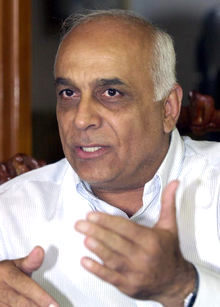 |
What is under public discussion now is a prisoner swap between Hamas, a Palestinian organization, and the Israelis. A few months ago, Hamas captured an Israeli soldier in a very courageous and daring military attack against an Israeli military post in Gaza. Hamas immediately called for a swap. For Israel, that demand was outrageous, and it started waging severe, bloody attacks against the people in Gaza. Although the Palestinians have captured Israeli soldiers in the occupied territories in years past, this is the first time they carefully concealed their operation and then immediately insisted on a swap. For Israel, this has been both humiliating and unacceptable. Israel started putting a great deal of pressure on the Palestinians in the hopes that the soldiers would be released. It started waging attacks that have claimed so far the lives of 520 Palestinians and resulted in thousands of injuries, the demolition of many homes, and the destruction of many industrial and agricultural installations. Israel also decided to detain Hamas members in the Palestinian cabinet and the legislative council. Israel aimed at crippling the political life of the Palestinians, and to inflict great harm on the Palestinian civilians who might, in turn, pressure Hamas to release the soldier. For Hamas, the entire operation is one that should be a hard lesson for the Israelis. The Israelis, according to Hamas, must learn that they can't detain Palestinians forever, and that the Palestinians are using effective measures so as to release their freedom fighters. Hamas didn't pay much attention to the Palestinian losses because that is part of the conflict, and those who want to win a war should be able to absorb casualties. Indeed, instead of yielding, Hamas and other Palestinian organizations have been mounting the military pressure on Israel through primitive, locally made missiles. The Palestinians are able to hit some Israeli towns that are on the border with Gaza and create an atmosphere of insecurity in southern Israel. The Israelis lacked at certain times the wisdom of punishing the Palestinians, and instead of hitting military targets, they hit civilian ones. These massacres were discussed at the U.N. Security Council, and only the U.S. veto could protect Israel from official censure. In addition, internal Israeli pressure on the Israeli government for the release of the soldier has been mounting. Military means have been fruitless and destructive. Southern Israeli citizens have started abandoning their homes and moving toward the populous center of Israel. The Palestinian government didn't fall, and Hamas remains intact. Finally, the Israelis found themselves in a situation of accepting reality: they have to agree on a swap if they want their soldier back. The Palestinians are demanding the release of cabinet and legislature members. They also demand the release of Palestinian faction leaders such as Ahmad Saadat, who is the leader of the Popular Front for the Liberation of Palestine, and Marwan Barghouti, who is a Fateh leader. Besides this, they insist that women, children, and the ill should be released, along with hundreds of long-term prisoners. Most likely, the Israelis will release cabinet and legislature members, women, children, and the ill. But they will be reluctant to release hundreds of prisoners with life sentences. I think that while the Palestinians won't get everything they want, the Israelis have no choice but to concede. And, overall, the Palestinians will emerge the winners, although they have lost hundreds of lives in the process. Please direct questions or comments to [englishhani@hani.co.kr]





